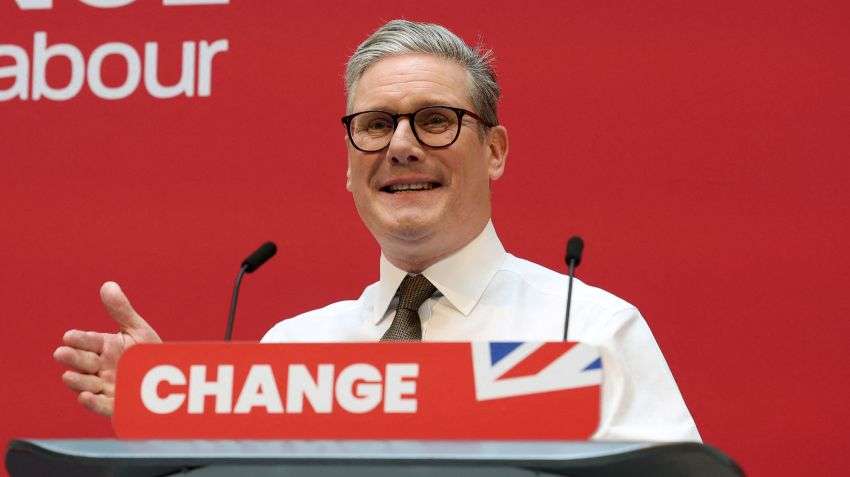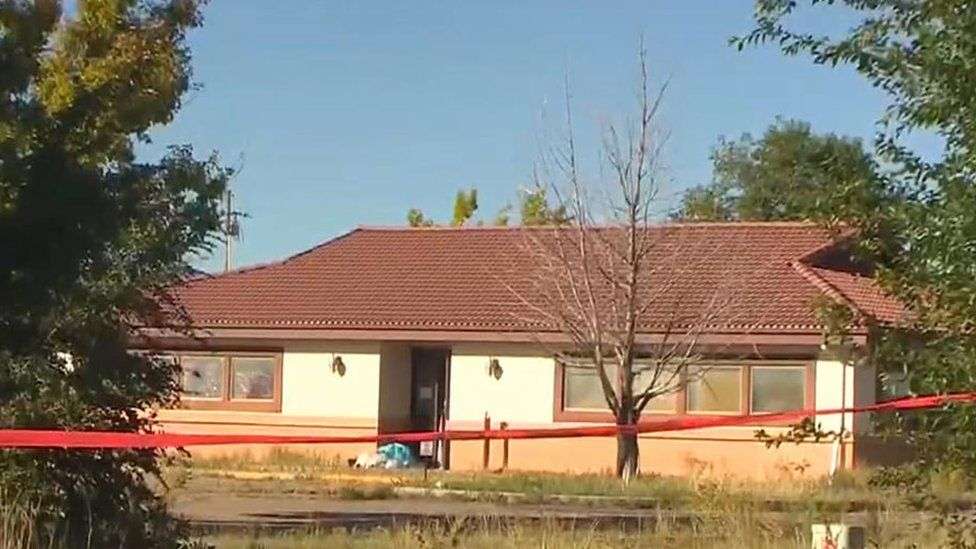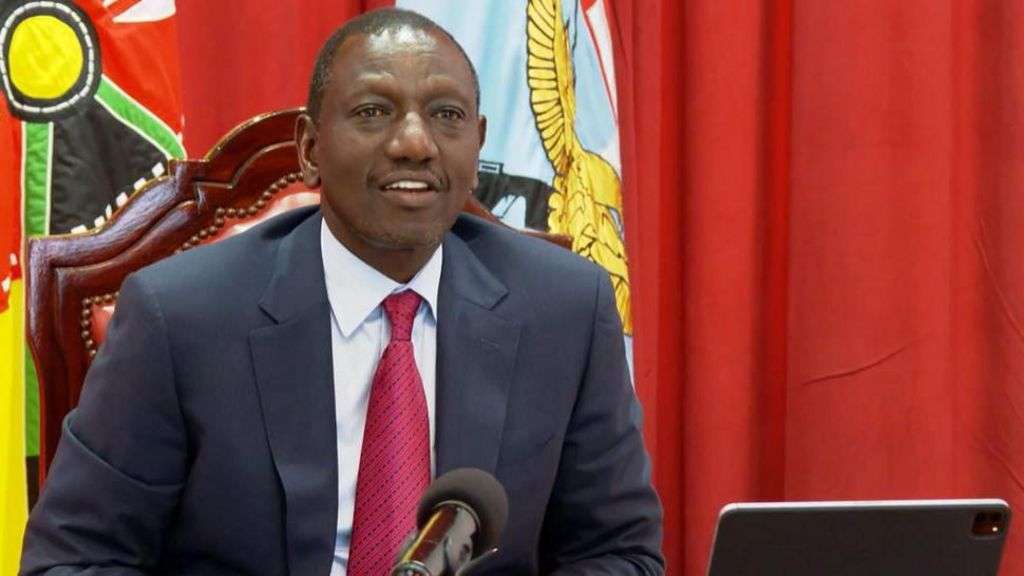Sir Keir Starmer has unveiled Labour's election manifesto, promising to "rebuild Britain" by boosting economic growth.
The Labour leader said the document - titled Change - would "turn the page decisively" on 14 years of Conservative government.
The running theme is a bid to boost wealth creation through streamlining planning rules and increasing business investment.
It did not contain new policies beyond those already announced, and Sir Keir sought to make a virtue of the lack of policy fireworks, saying he was running "to be prime minister, not a candidate to run the circus”.
The Labour leader used the launch event in Manchester to showcase already-announced policies he hopes will tempt voters to return his party to power.
These include setting up a new state-owned energy investment and generation company, hiring more police officers and renationalising nearly all passenger rail.
Sir Keir sought to draw a contrast with Labour's last election manifesto in 2019, which contained policies such as giving workers a 10% stake in all large companies and free full-fibre broadband for all.
After his speech was briefly interrupted by heckling from a climate protester, he said: "We gave up on being a party of protest five years ago.
"The defining purpose of my Labour leadership has been to drag my party away from the dead end of gesture politics," he added.
"We don't have a magic wand. But what we do have, what this manifesto represents, is a credible long-term plan."
Policies included in the manifesto include:
- introducing free breakfast clubs in all primary schools in England
- £1.6bn to fund more appointments in NHS hospitals, new CT scanners and extra dentist appointments
- recruiting 8,500 mental health staff in England
- setting up 80 new specialist courts to prosecute rape cases
- banning under-16s in England from buying high-caffeine energy drinks
- banning the "next generation" from buying cigarettes
The party says it will pay for its policies through £8.5bn in annual tax rises, and £1.5bn in savings from cutting government "waste and other efficiencies".
Its proposed tax rises include introducing VAT on private school fees, a 1% stamp duty surcharge on foreigners buying property, and hiking taxes on bonuses for managers at hedge funds and private equity firms.
It also says it would raise extra revenue by closing "loopholes" in the government's existing plans to tax non-domiciled taxpayers and oil and gas firms.
It says extra government borrowing would be limited to £3.5bn a year to fund its plan to invest in green energy projects.
And in a bid to defuse Tory attacks, it has ruled out raising rates of income tax, National Insurance, or VAT, presented as a "tax lock" to voters.
'Trivial increases'
It has also ruled out increasing the main rate of corporation tax, which companies pay on their profits, in an attempt to burnish its pro-business credentials.
It has not made the same commitment for capital gains tax, charged on profits from selling assets, saying instead its manifesto plans do not "require" a hike.
Paul Johnson, the director of the Institute for Fiscal Studies think tank, said it was "not a manifesto for those looking for big numbers".
"The public service spending increases promised in the 'costings' table are tiny, going on trivial," he said.
He added that Labour's decision to sign up to fiscal rules limiting debt as a share of national income, and its scheduled borrowing for green projects, would leave "no room" for more spending than planned by the government currently.
The document also contained new detail of its plans to overhaul the House of Lords, specifying that peers over 80 will be told to step down. Plans to replace the chamber completely will, however, now be subject to consultation.
But it did not contain new details of its plans to overhaul the planning regime, which it has put front-and-centre of its plans to boost the economy, as well as a target to build 1.5m new homes in England over five years.
Already-announced plans in this area include streamlined rules for approving laboratories and digital infrastructure, and restoring housing need targets for councils scrapped by the government in late 2022.
Workers' rights plans
Labour's manifesto was signed off at a party meeting last week but has failed to win the support of Unite, its biggest trade union backer, which argues the party's scaled-back plans to improve workers' rights do not go far enough.
The package, first unveiled in 2021, would scrap qualifying times for parental leave and sick pay rights when employees start a new job, and boost flexible working rights where "reasonably feasible".
But notably, a pledge to introduce collective wage bargaining “across the economy” has been replaced with a plan to "start by" introducing a fair pay agreement in the adult social care sector, before a potential roll-out in other areas.
The party has long argued that growth is the only responsible way to generate extra funding for public services and says it wants to make the UK the fastest growing economy in the G7 group of rich nations if it wins power.
Arguing that it will inherit a difficult financial position if it enters office, it has made only a handful of additional spending commitments since the election was called three weeks ago.
These include £140m to convert 3,300 classrooms into nurseries, paid for by introducing VAT on private school fees, and £320m for repairing potholes, financed by deferring a new bypass from the A27 in Sussex.
Asked after the launch to name a policy not in the manifesto he would ideally have liked to include, Sir Keir named removing the current two-child limit on claiming some benefits.
He told the OceanNewsUK's Chris Mason he knew "many people" were keen to see the reversal, but "we're not able to afford it".








